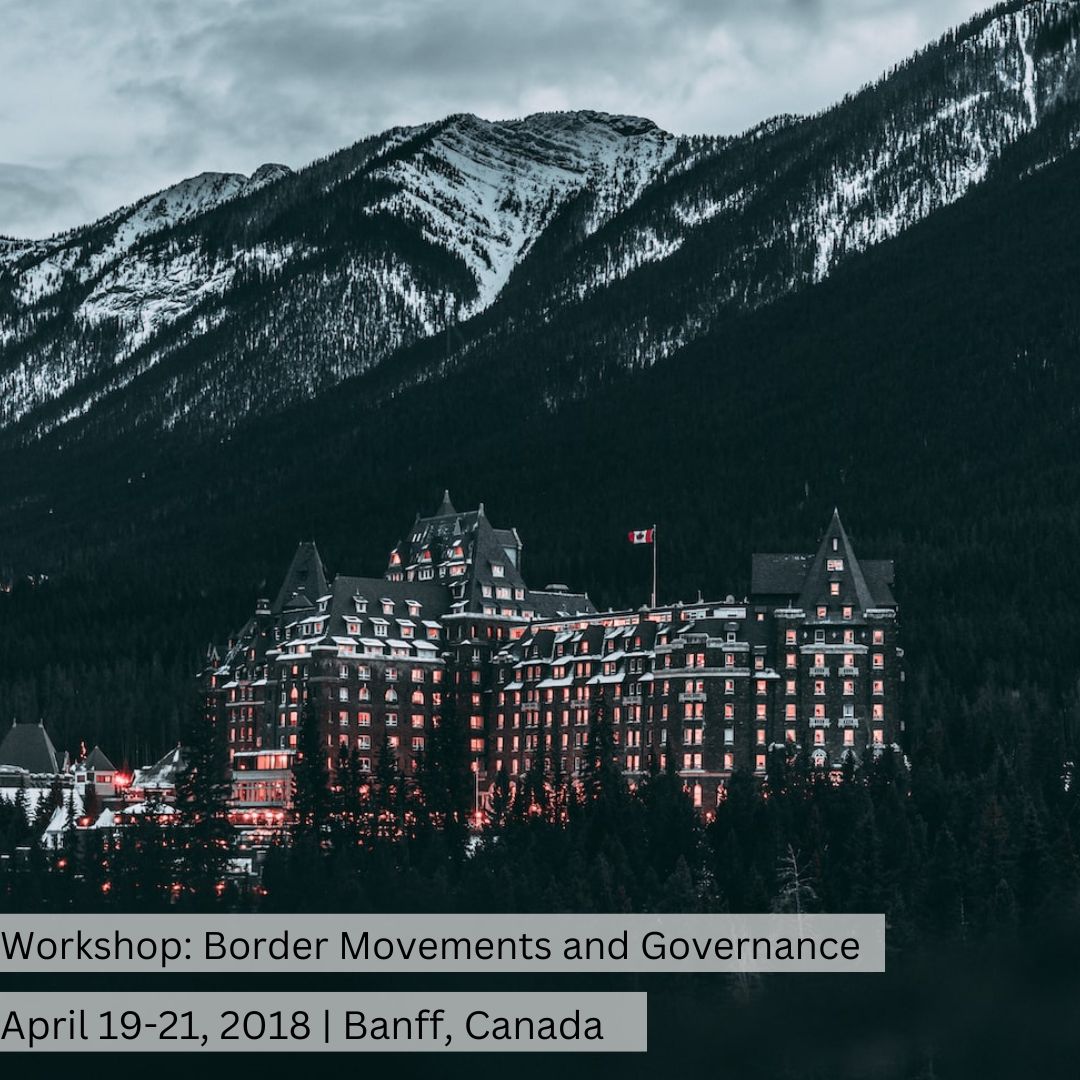Across the Canada–United States Border
April 2, 2025 | Seattle, WA
On April 2, 2025, at the Canadian Consulate in Seattle, WA, USA, as a shoulder of the Association of Borderlands Studies annual ‘Legacy Conference’ (held with the World Social Science Association), BIG_Lab held a one-day workshop looking at relevant regional border issues from a security perspective. This small group of approximately 25 people, was made up of a mix of persons from academics, industry, and government. Our goal was to examine regional border issues from a multifaceted lens and explore options for improving cross border relationships. There were two panels, one on digital identity, and a second on E-commerce, given the significance of Amazon to the Seattle business community. These were round table discussions, with all questions scripted in advance, and Chatham House rules applied.

Towards a Conceptualization of Borders, (Un)civil Society, and Contentious Politics
April 7–8, 2025 | University of Victoria
Members of the Borders in Globalization Lab (BIG_Lab) team will be hosting a workshop event in April 2025 bringing scholars from across the world together to discuss issues of populism, civil society contention, and border politics. The workshop will feature panel presentations by emerging and established scholars working on topics including the discursive making of borders, the politics of resistance in border regions, the imperial and colonial dimensions of borders, and the role of populism and ‘post-truth’ in border contention. Dr. Jeff Corntassel, the lead of BIG_Lab’s Pillar 1 on Indigenous Internationalisms, will give the opening keynote address, along with BIG_Lab team members Dr. Emma Swan, Dr. Maria Sigridur Finnsdottir, and Jules Soupault.
The workshop will also offer the team members an opportunity to present their novel theoretical framework – ‘Constellation of Truths’ (CoT). The CoT framework is rooted in two assumptions: first, that truths and narratives play a crucial role in the (re)production and contestation of borders, bordered subjects, and border identities. Second, that hegemonic truth is in crisis in current political climate, as evidenced in rise of populist and authoritarian politics. Rather than understanding this era as being one of ‘post-truth’ – which presupposes a prior era where truth was important in politics – we contend that truth was also been contested, resisted, and produced through interaction. We argue that as (un)civil society actors in the borderlands are invested in intervening, attempting to construct alternative political imaginaries or producing knowledge in the borderlands, their struggles are generative of a constellation of truths. Within this constellation, diverse voices, narratives, and truth claims all interact with differing degrees of power to construct and broaden the realm of political imaginaries.
See the program below for more details.

21st Century Borders in Japan — Early Career Researcher Writing Workshop
Hokkaido University, Sapporo, Japan | February 15–16, 2024
The International Research Center for Japanese Studies will be hosting an Early Career Writing Workshop titled “21st Century Borders in Japan” on February 15–16, 2024 at Hokkaido University in Sapporo, Japan. This workshop aims to develop academic articles and policy papers from early career researchers at both the graduate and postgraduate levels. More info can be found here.
21st Century Borders in Japan Writing Workshop
15 & 16 February, 9:30am–5pm
Room W302, Humanities and Social Sciences Building
Pre-Workshop Seminar
14 February, 4:30pm–6pm
“Quantifying Borders: Border Dyads and OSCE Disputes”
Prof. Emmanuel Brunet-Jailly (University of Victoria, Borders in Globalization Coordinator)
Co-Sponsored by the SRC (UBRJ/EES)
Slavic-Eurasia Research Center, Room 401 (Fourth floor)
21st Century Borders in Japan Writing Workshop
15 & 16 February
Room W302, Humanities and Social Sciences Building

JMN Workshop #2: Borders and Human Security to Military Security Database
Strasbourg, France | November 30 – December 1, 2022
This workshop was hosted between November 30th and December 1st, 2022 at the Château de Pourtalès in France. Workshop participants attended both in person and virtually.
Participants:
Frédérique Berrod (University of Strasbourg)
Emmanuel Brunet-Jailly (University of Victoria)
Maria Finnsdottir (University of Toronto)
Gregory Hamez (University of Lorraine)
Wojciech Opiola (University of Opole)
Bernard Reitel (University of Artois)
Niklas Schulz (University of Lorraine)
Shoukia van Beek (University of Victoria)
Birte Wassenberg (University of Strasbourg)
Hynek Böhm (University of Opole)
Ágnes Eross (University of Opole)
Stephanie Gruhlke (University of Victoria)
Roland Hesz (Central European Service for Cross- border Initiatives)
Benjamin Perrier (University of Victoria)
Jean Rubio (Mission Opérationnelle Transfrontalière)
Jules Soupault (University of Victoria)
Ari Finnsson (University of Toronto)
Kasra Ghorbeninejad (University of Victoria)
Caitriona Mullan (Association of European Border Regions)
Halina Sapeha (University of British Columbia)

Teams |March 31, 2021
This workshop’s prime activity was launching the Network. This workshop allowed us to (1) virtually host our partners and invite them to propose specific indicators or variables for the database based on their own work and specializations, and (2) connect with a wide range of local, regional and national partners, including non-academic organizations, with an interest in developing this research and training.
Our Network hypothesizes that EU responses to crisis are shaping policies with implications for human and state security, and that these responses are often exemplary as international models though not implemented with consistency across the EU.
To assess this situation, our Jean Monnet Network Team Human-to-Military Security Data Base discussed ideas/proposals for the development of database indicators at our first workshop.
Our core research focus is to challenge the well-established conception that borders are primarily territorial boundaries that emerge out of international treaties and thus that security issues should naturally be dealt with at the boundary line. Our contention is that contemporary borders in our era of globalization are processes that are in many instances ‘a-territorial’ (de-territorialized) because the border is ultimately carried out on individuals, goods and/or information on the move. Bordering processes have moved away from the boundary line and are individualized to persons and goods, occurring at sites in countries of origin, across transit countries, and within their country of destination.
Our methodology relies on the construction of datasets concerning the interplay between border policy and human/state security, with emphasis on instances of cooperation and collaboration straddling border internal and external to the European Union. We include maritime borders as well as borders within the EU and along its periphery.

Summer Workshop: Canadian Borders Policies in Comparative Perspectives
Victoria, Canada | July 12, 2019
UVic’s Borders in Globalization (BIG) research program in partnership with Canada Border Services Agency (CBSA), and with funding from the Erasmus+ Programme of the European Commission, hosted a one-day workshop to explore specific policy-relevant questions on Canadian borders. The workshop had approximately 10 students present and discuss research papers with experts, scholars and border officials. This workshop provided an outstanding opportunity to conduct and present targeted research to the policy-makers who will use the knowledge, in addition to professional development and networking opportunities.
The research papers covered three topics:
Topic 1: Asylum. What border policy reforms have been introduced in EU Member States over the past 5 years in response to the significant influx of asylum seekers in Europe? For example, reforms to entry / exit controls, identity management, public safety, security screening, and immigration enforcement measures.
Topic 2: Immigration Enforcement. Propose an analytical framework for assessing the gender-based analysis plus (GBA+) considerations with respect to developing immigration enforcement policy, including detention and removal.
Topic 3: Screening. Which countries, over the past 15 years, have had governments that have been involved in terrorism, systematic or gross human rights violations, a war crime, crimes against humanity or genocide? Compare and contrast Canada’s designated regime list with similar measures in place in other countries including the United States, United Kingdom, Australia, New Zealand, and/or EU Member States.
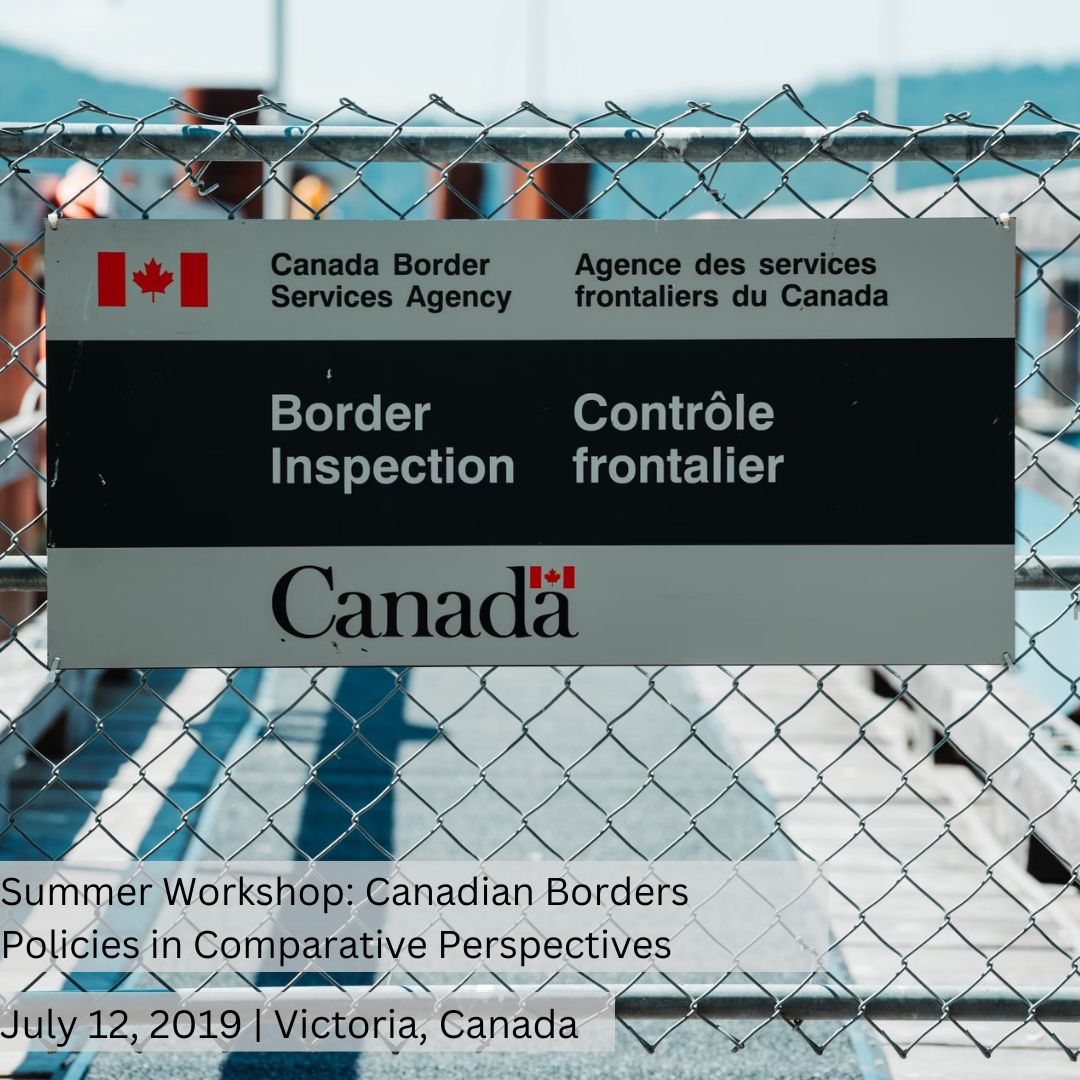
Canada Workshop – Canada’s border and migration policies in comparative perspective
Victoria, Canada | November 13, 2018
This closed workshop focused on exploring comparative border and migration policy coming out of the European migration crisis from a Canadian perspective. This is the last workshop of the project; we have already conducted workshops in Strasbourg (internal EU borders, Schengen), Brussels (on external EU borders, Dublin), Japan (on “immigration” policies). The purpose of the workshop is to present, discuss, review and analyze, border and migration literatures and policies and to do so from a comparative perspective. There is a public talk, connected to this workshop, by Birte Wassenberg – see below.
Comparing and Contrasting EU Border and Migration Policy – Are They Exemplary?
Organized by the Jean Monnet Network
Panel 1 – Setting the context: Ethical questions / humanitarian issues regarding global border and migration policies was moderated by Oliver Schmidtke (University of Victoria), and featured speakers Scott Watson (University of Victoria) on Canada and the International Refugee and Migration Regime; Asad Kiyani (University of Victoria) on The Three Dimensions of Canada’s Migration Crisis; Nicole Bates-Eamer, (PhD Student at University of Victoria) on Climate Change & Migration to Canada. The panel also featured Discussant Jean McRae (Inter-Cultural Association of Greater Victoria).
Panel 2 – National Policies in Comparison – Canada & Comparisons EU was moderated by Emmanuel Brunet-Jailly (University of Victoria), and featured speakers Birte Wassenburg (University of Strasbourg) on EU Internal Borders; Can Mutlu (Acadia University) on EU External Borders; Donald Galloway (Law, retired) on Canadian legal perspectives; and Oliver Schmidtke (University of Victoria) on Canadian political & historical perspectives. The panel also featured Discussant Michael Carpenter (Post-Doctoral Fellow, Borders in Globalization at UVic).
Panel 3 – Perspectives from the Field was moderated by Jean McRae (Inter-Cultural Association of Greater Victoria), and featured speakers Solomon Wong (INTERVistas – speaking remotely) on Beyond Preclearance and Border Policy; Sabine Lehr (Inter-Cultural Association of Greater Victoria) on “Exporting” refugee sponsorship: Navigating the borders of expansion or restriction of the protection regime; and Claude Beaupre (MA Student Sciences Po) on Analysis of the Canadian Media Coverage of the Migrant and Refugee Crisis in Europe, 2015 2016. The panel also featured Discussants Scott Watson and Can Mutlu.
Finally, the workshop held a recap roundtable led by Michael Carpenter (University of Victoria).
The Workshop also featured a public lecture from Birte Wassenburg, European Border Regions
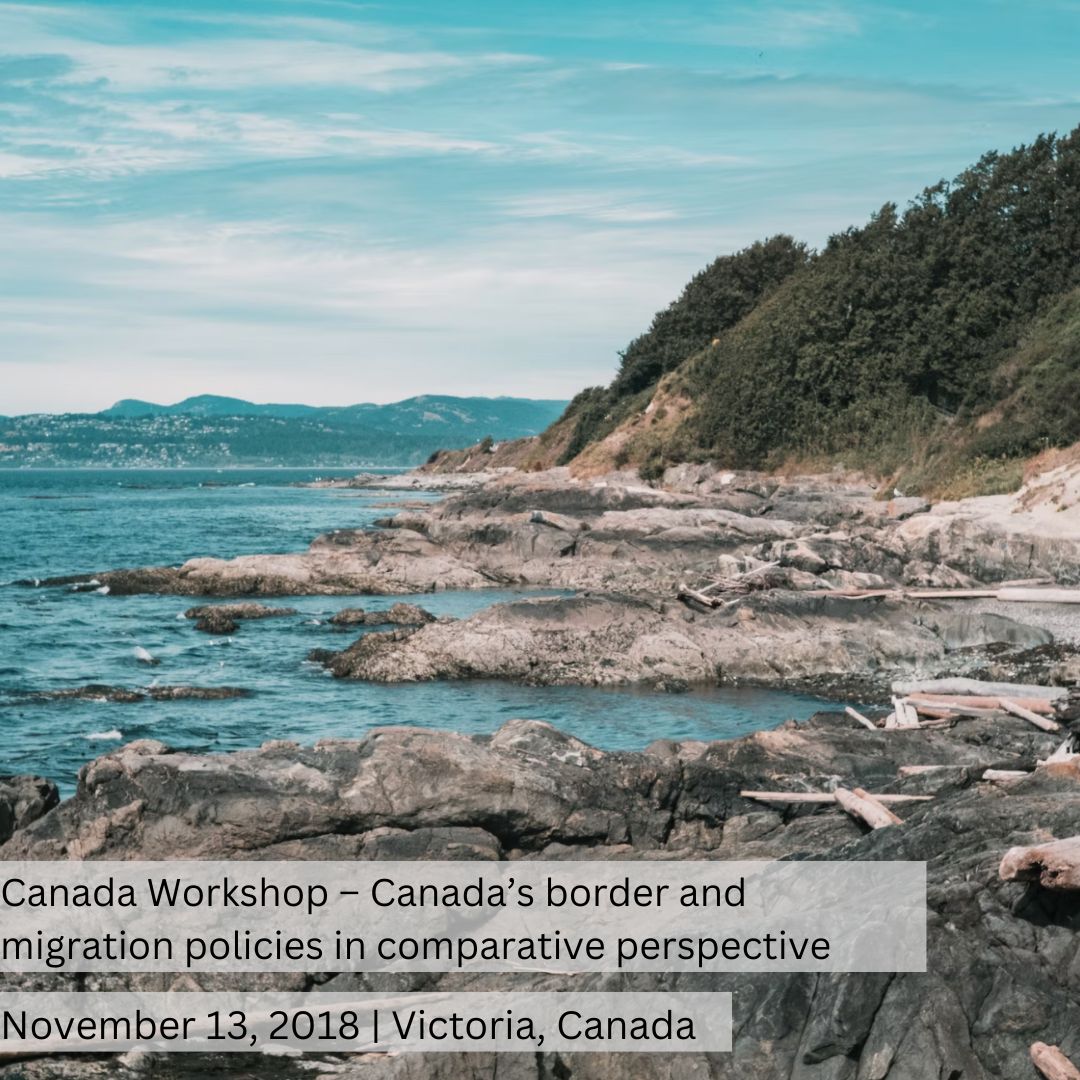
Workshop: Borders and Regionalism in South Asia
New Delhi, India | August 25, 2018
South Asia is regarded as one of the least integrated regions of the world. This is despite the fact that the region shares a common history, culture and developmental challenges. Indeed, some hard borders and boundaries act as hurdles for regional integration in South Asia. Contrary to this dominant representation of the region, other realities are quite often ignored. One such important aspect is the socio-cultural and historical ties that exist among the people of the region. Thus, while acknowledging the official borders, we can also see that there are prospects for progress. The commonality between the people opens the possibilities for soft regionalism and in a way, could lead to regional integration in South Asia. This one day workshop invited papers from young scholars to discuss the possibilities of regional integration in South Asia by bridging the existing borders and boundaries. Young faculty members and doctoral students submitted abstracts on themes related to borders and regionalism in South Asia.
Some of the suggested topics were Culture and Borders in South Asia, Border Regions in South Asia, Economic Integration and Borders, South Asian Connectivity, The Mental Borders and Boundaries in South Asia, and Comparative Borders: Examples from Other Regions.
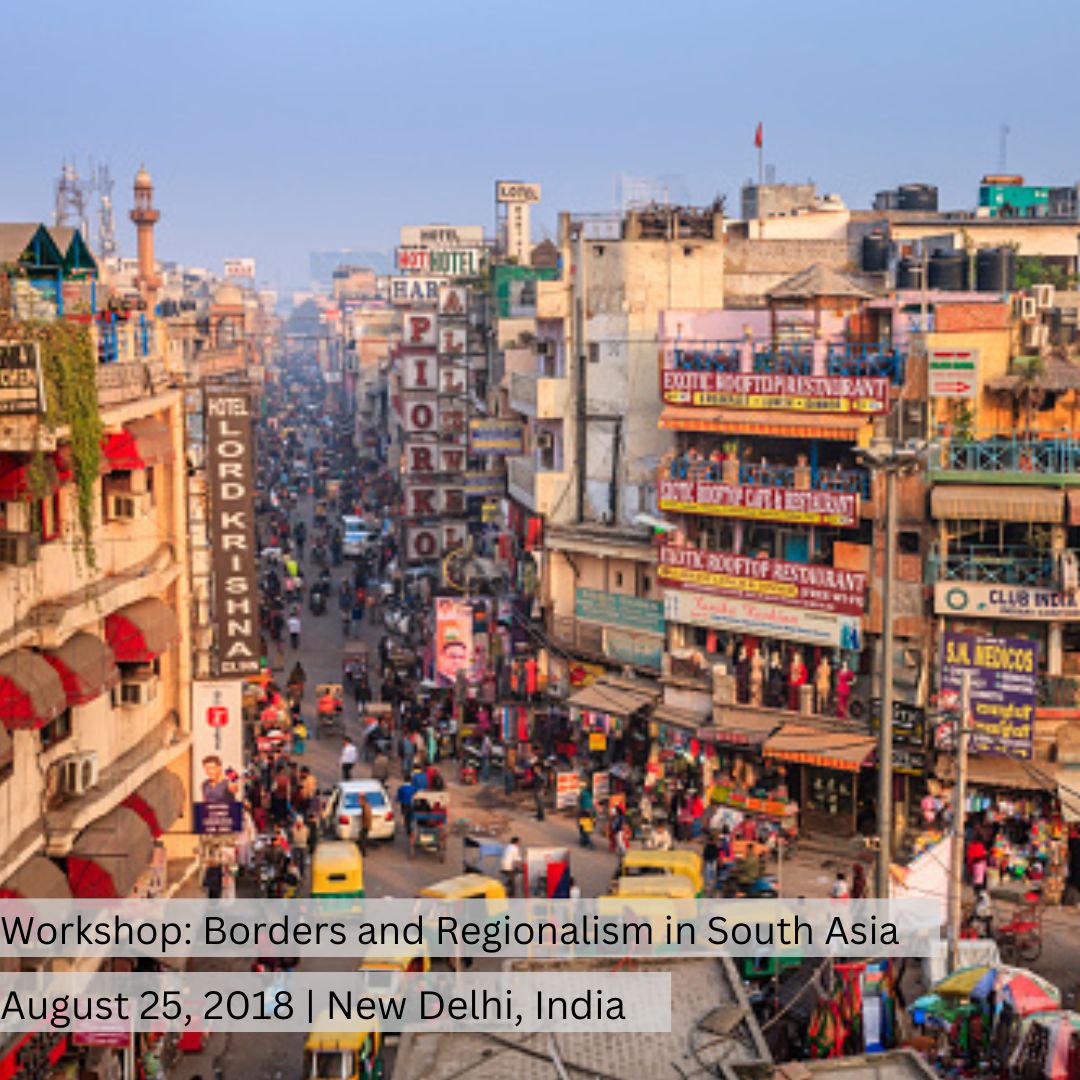
Workshop: Immigration Policy and Border Security in Japan
Sapporo, Japan | April 21, 2018
Organized by the Jean Monnet Network, this workshop brought together scholars and policymakers to discuss border and migration policy in Japan. Panels will feature Japan-based experts, as well as other international BIG partners.
As an island nation with a declining population that nevertheless steadfastly refuses to countenance a migration policy, Japan provides an important test case when considering the potential universality of the EU’s border and migration experience. The globalization of borders as a particular technique, associated with various technologies, has appeared to presage the homogenization of specific practices associated with national or supranational border policies. Nevertheless, while many of the institutions of border control utilized by Japan appear to bear a resemblance to those of other countries, the ways in which they are implemented is frequently at odds with how superficially similar methods are deployed elsewhere. Expansive notions of global governmentality, particularly associated with the institutional development of supranational bodies like the EU, continue to find their actual practices of implementation refracted through the political cultures of the administrative bodies responsible. As a consequence, greater attention to both the historical and geographical context within which such an administrative culture exists is necessary, and these factors were consequently central to our Hokkaido Workshop. The three panels situated Japan’s current policies within the context of their historical development, described their contemporary performance, and reflected upon the wider regional context within which Japan’s immigration and security policies find expression. In doing so, it provided a standpoint from which to reflect upon the possibilities and limits inherent in claims for the imitative potential offered by the migration and security policies of the EU.
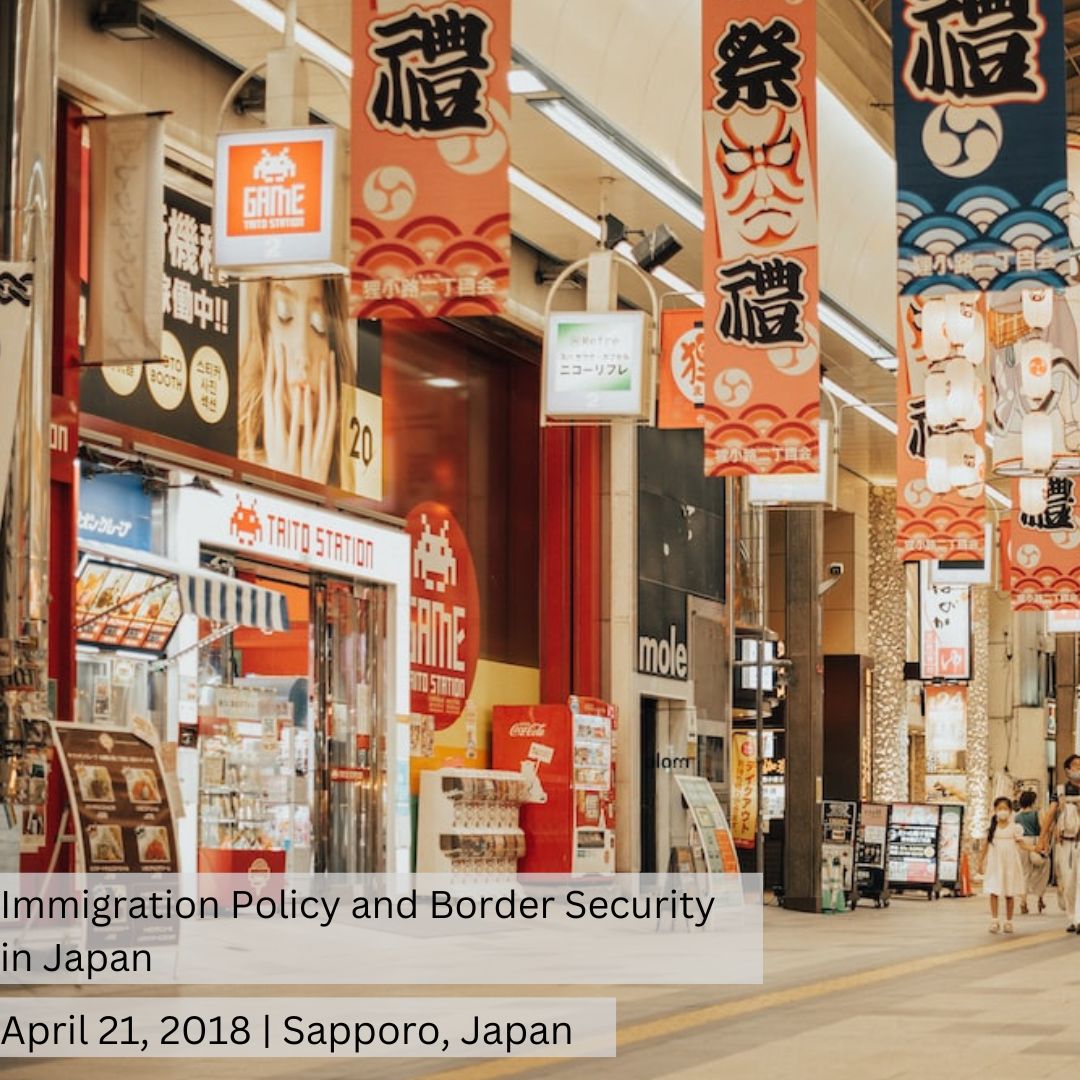
Workshop: Border Movements and Governance
Banff, Canada | April 19-21, 2018
Geoffrey Hale (University of Lethbridge) led a workshop for authors on border movements (flows) and governance for a book project entitled Borders in Motion: Canada’s International Policy Relations in an Era of Political and Economic Uncertainty. The workshop took place at the Banff Centre on 19-21 April, 2018.
